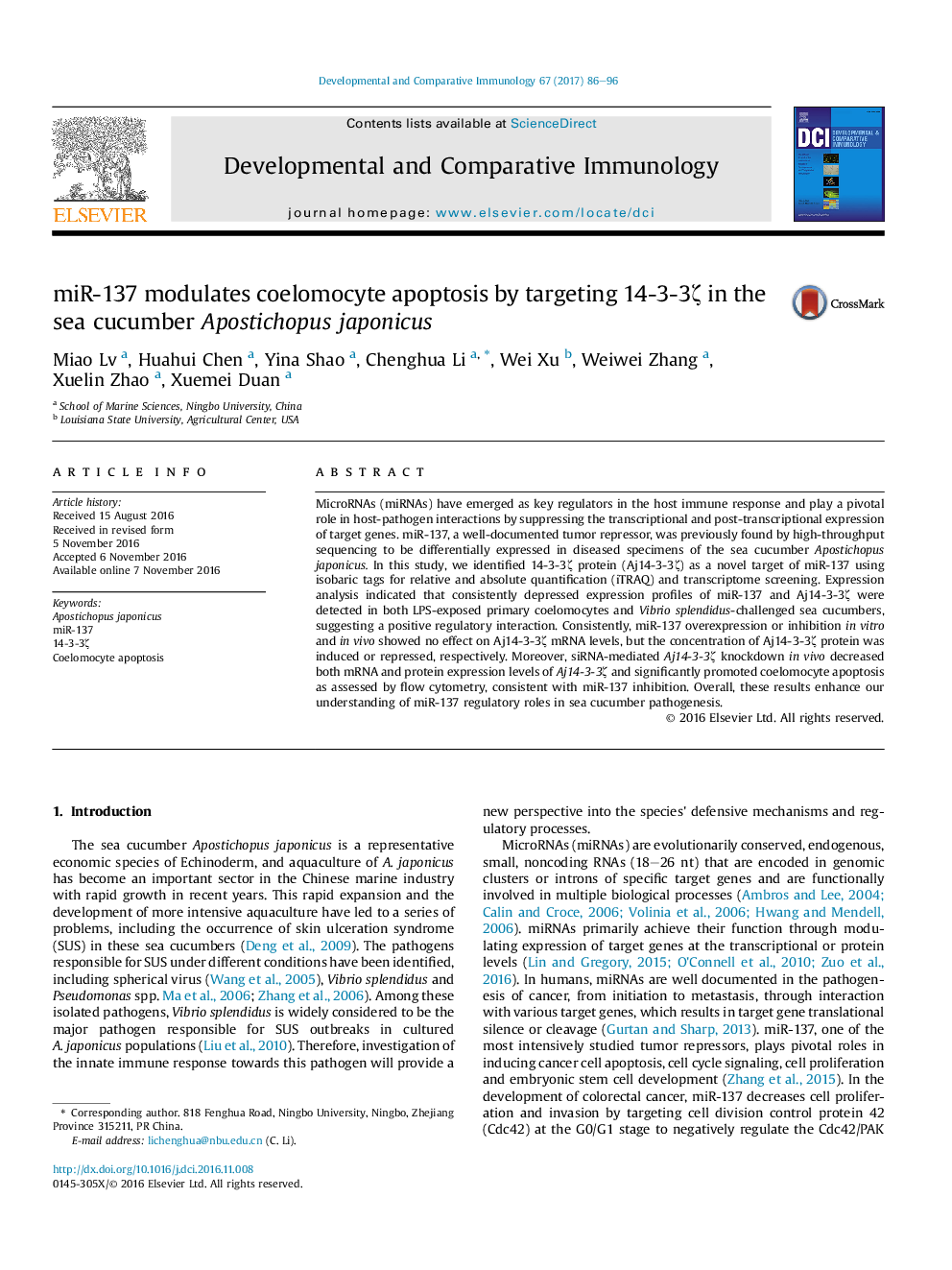| Article ID | Journal | Published Year | Pages | File Type |
|---|---|---|---|---|
| 5540211 | Developmental & Comparative Immunology | 2017 | 11 Pages |
Abstract
MicroRNAs (miRNAs) have emerged as key regulators in the host immune response and play a pivotal role in host-pathogen interactions by suppressing the transcriptional and post-transcriptional expression of target genes. miR-137, a well-documented tumor repressor, was previously found by high-throughput sequencing to be differentially expressed in diseased specimens of the sea cucumber Apostichopus japonicus. In this study, we identified 14-3-3ζ protein (Aj14-3-3ζ) as a novel target of miR-137 using isobaric tags for relative and absolute quantification (iTRAQ) and transcriptome screening. Expression analysis indicated that consistently depressed expression profiles of miR-137 and Aj14-3-3ζ were detected in both LPS-exposed primary coelomocytes and Vibrio splendidus-challenged sea cucumbers, suggesting a positive regulatory interaction. Consistently, miR-137 overexpression or inhibition in vitro and in vivo showed no effect on Aj14-3-3ζ mRNA levels, but the concentration of Aj14-3-3ζ protein was induced or repressed, respectively. Moreover, siRNA-mediated Aj14-3-3ζ knockdown in vivo decreased both mRNA and protein expression levels of Aj14-3-3ζ and significantly promoted coelomocyte apoptosis as assessed by flow cytometry, consistent with miR-137 inhibition. Overall, these results enhance our understanding of miR-137 regulatory roles in sea cucumber pathogenesis.
Keywords
Related Topics
Life Sciences
Biochemistry, Genetics and Molecular Biology
Developmental Biology
Authors
Miao Lv, Huahui Chen, Yina Shao, Chenghua Li, Wei Xu, Weiwei Zhang, Xuelin Zhao, Xuemei Duan,
